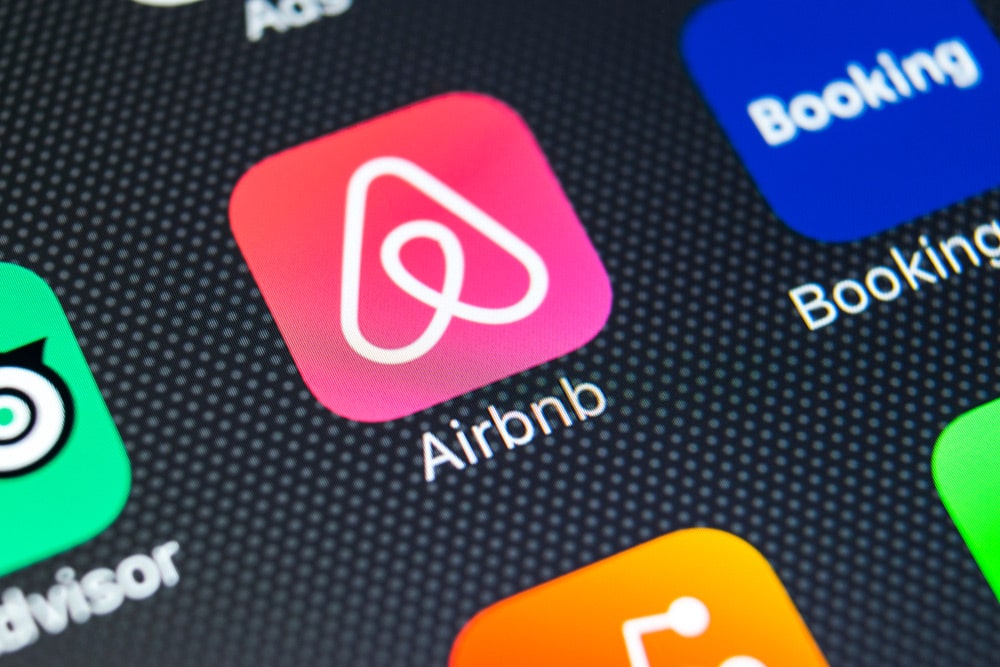Even with the recent rollout of the COVID-19 vaccine, it’s a safe bet that we’re going into another full year without jet-setting overseas – this means demand for domestic travel is going to soar.
What goes hand in hand with exploring our great Australian backyard? Accommodation that feels special, is in an idyllic location and is close to all the vibing tourist hot spots. Enter Airbnb.
We’ve likely all cottoned on to Airbnb now and its unique marketplace that connects travellers with independently owned holiday rentals.
However, the concept has not just been revolutionary for holidaymakers – it’s also become increasingly popular for property investors looking to shake up their income strategy.
But before you jump headfirst into the world of short-term letting, it’s important to know the differences between making money through a traditional property investment structure versus holiday rentals.
Here are four questions to ask yourself before you consider becoming an Airbnb investor:
DOES THIS FIT INTO YOUR BIG PICTURE STRATEGY?
First things first, why are you looking into Airbnb?
Personally, I know a few of my clients consistently go on holiday over Christmas so it made sense for them to hire out their property during that time to create extra income.
However, buying a property to function purely for short-term accommodation all year around will impact your strategy massively, particularly when it comes to your own involvement in keeping it running.
See unlike a typical investment property that you may rent out long-term and have a property manager to handle the day-to-day, with short-term letting, YOU are the agent. The work of advertising the property, responding to emails and queries, coordinating bookings and payments, plus arranging cleaning and maintenance falls on you.
If your strategy was to let things run passively in the background, then this scenario may not be for you. However, if you’re prepared to put in the extra leg work and actively manage the investment, then it might be worth testing as an added income stream.
DO YOU MEET THE REQUIRED REGULATIONS?
Due to the incredible growth this industry has seen since being introduced to the market, there have been increased regulations put in place so not every property can be used as an Airbnb legally.
Some Australian government departments, local councils and homeowners’ associations require you to ask permission. Some cities require landlords to obtain a permit or license.
Your listing also needs to make sure it complies with local zoning laws – so make sure you do your due diligence and understand the legalities before you purchase a property for short-term stay.
ARE YOU PREPARED FOR YOUR EXPENSES TO BE HIGHER?
With the Airbnb market in Australia in high demand, ensuring your property stands out might mean having to funnel more money up front to entice holiday-goers.
For starters, these types of rentals are expected to be fully furnished with a good range of amenities available and depending on the type of traveller your property caters for, these may differ.
However, there are certain basics you’ll be expected to have including Wifi, TV with a streaming service available or Foxtel, an iron, basic toiletries and clean sheets and towels.
Even providing basic food items and added extras like coffee and tea are now becoming more of an expectation. Of course, you can choose to go without a lot of these amenities, but you’ll find it a lot harder to compete in the market.
Don’t forget that if you don’t plan on managing the property personally, instead outsourcing cleaning and guest services, then this will add further to your overall operating costs.
WILL YOU BE RELYING ON THIS INCOME OR WILL IT BE AN ADDED BONUS?
The number one consideration you need to make when getting into the Airbnb property market is that your income may be irregular.
Of course, this is due to the fact that bookings can be inconsistent, and there may be many stretches throughout the year where you have vacancies.
Some hosts try to offset these downtimes by charging more than a typical rental property, however there’s no guarantee you’ll come out on top. Therefore, if you’re going into this investment relying on the income to pay off debts or fund your lifestyle, you’re putting yourself in a high-risk position.
BEFORE YOU JUMP IN, CONSULT AN EXPERT
Understanding all the ins and outs of investing in short-term accommodation is important, so don’t jump in without doing your due diligence.
If you’re looking to create financial freedom through property investing, consider all of your options and come up with an investment strategy that fits the bigger picture of the lifestyle that you’re trying to achieve.
To help weigh up the pros and cons, join us for a free property investing seminar. Take away free information from experts who are able to help you succeed.
Limited spaces available.
By Jason Whitton
Group CEO Positive Real Estate






